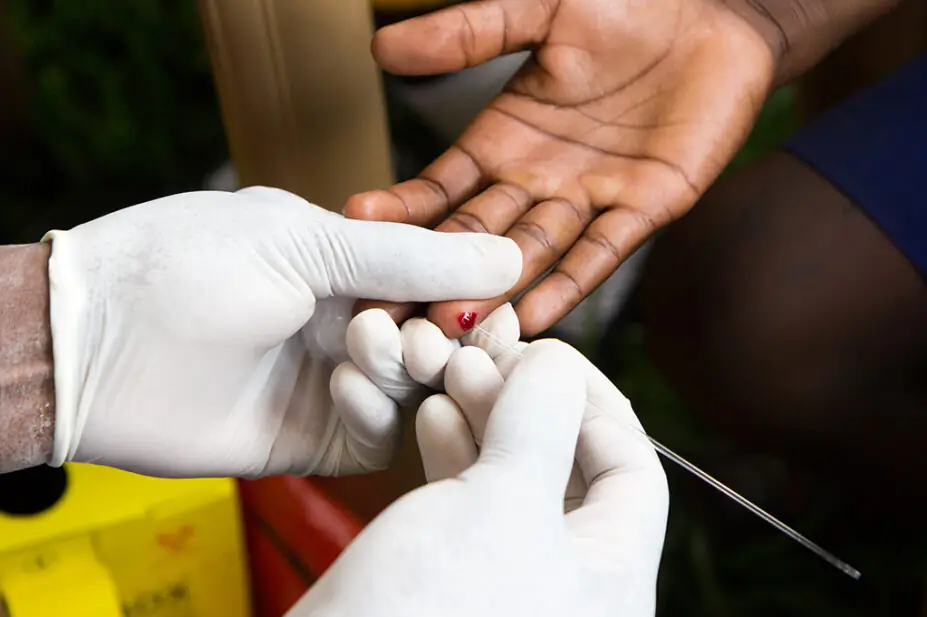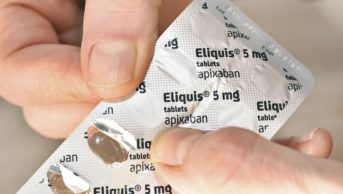
Shutterstock.com
Community pharmacists in England made almost 150,000 interventions with patients taking oral anticoagulants, as part of two national anticoagulant audits aimed at identifying and addressing medication issues that could increase the risk of bleeding and harm to patients.
The audits took place in 2021/2022 and 2023/2024, under the ‘Community pharmacy contractual framework’ and the Pharmacy Quality Scheme (PQS). As part of these, around 11,000 pharmacists audited just under 250,000 patients.
A report on the outcome of the audits, published in Pharmacy on 29 August 2024, says that there was a “statistically significant increase in patients with a standard yellow anticoagulant alert card” between the two audits: 66.5% (73,901) in the first audit, in 2021/2022, rising to 73.3% (76,735) by 2023/2024.
A standard yellow anticoagulant alert card includes treatment details of a patient taking anticoagulants and is intended to be carried at all times.
By the time of the second audit, the results showed that fewer patients were prescribed antiplatelets at the same time as anticoagulants — which can increase the risk of gastrointestinal bleeding — from 4.6% (6,021) in 2021/2022, down to 4.0% (4,975) in 2023/2024.
During the second audit, there was an increase in patients who were prescribed non-steroidal anti-inflammatory drugs (NSAIDs) with anticoagulants, but added that more of these patients were concurrently prescribed gastroprotection: 77.2% (927) in 2021/2022 to 1,457 84.1% in 2023/2024.
The audits also found that 23.0% of patients (24,545) were prescribed vitamin K antagonists, such as warfarin, in 2021/2022. The remainder (86,650) were prescribed direct oral anticoagulants (DOACs).
By 2023/2024, the percentage of patients on vitamin K antagonists had decreased to 16.0% (17,043).
Commenting on the report, Frances Akor, consultant pharmacist in anticoagulation at Imperial College Healthcare NHS Trust, said the findings showed “improvements in key areas”.
However, she also noted: “One in five patients were still unaware of the symptoms of over-anticoagulation — further a slightly lower proportion were unaware of the need to check with a professional before taking over-the-counter medicines, supplements or herbal products.
“Consideration should be given to standardising practice regarding alert cards, particularly as there are now a range of generic versions of apixaban and rivaroxaban each with their own alert card. In addition, an electronic, smartphone-accessible format of the standard yellow alert card should be considered to increase uptake, particularly amongst younger patients on anticoagulants,” she added.
“There are now over 1.5 million people diagnosed with atrial fibrillation (AF), and approximately another quarter of a million yet to be diagnosed,” she added.
“With ongoing work to detect AF, and ensure all eligible patients receive anticoagulation at the right dose, alongside an ageing population, the number of prescriptions for anticoagulation is set to continue on an upward trajectory. With this comes the potential for more safety issues.
“The role of community pharmacy in anticoagulation stewardship is crucial to optimise and promote safe use of anticoagulants.”
A study published in The BMJ in July 2024 revealed that, among 246,000 people prescribed NSAIDs alongside oral anticoagulants, hazardous prescribing events resulted in 2,143 quality-adjusted life years lost (894–4,073), with an associated cost of £25.41m (£5.25m–£60.01m).
You may also be interested in

Some patients switched to edoxaban without being properly informed, pharmacists say

Anticoagulants can increase survival in hospitalised patients with moderate COVID-19, trial data show
